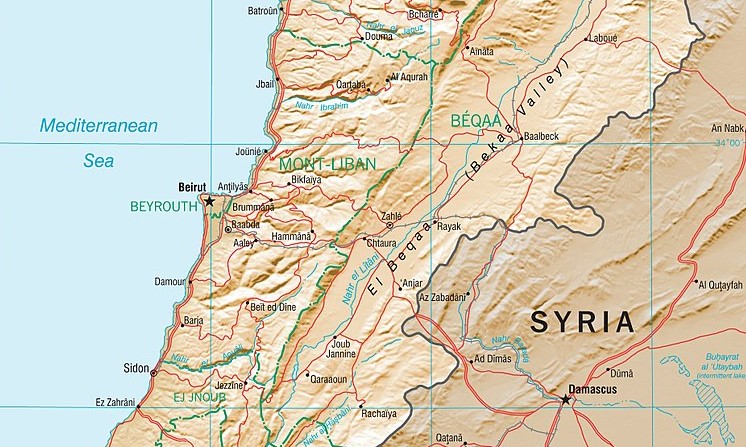September 07, 2021

Map from CIA World Factbook 2015.
Update: All six Syrian detainees were released on October 12, 2021.
Arbitrary arrest and incommunicado detention
On August 24 and August 27, 2021, six Syrian nationals were arrested near the Syrian embassy in Baabda, where they were to be issued passports. They were first arrested by unidentified security forces who blindfolded the men, interrogated them and then handed them over to the Lebanese army.
On August 28, 2021, the Lebanese Army released a statement saying that the men were in its custody. The army confirmed that its intelligence directorate had, over the past four days, arrested the six men outside the embassy for “entering the country irregularly”, and that they had been handed over to the General Security directorate, which oversees the entry and exit of foreigners into the country.
The men were detained incommunicado until September 1, 2021, when they were finally able to meet their lawyers at the detention centre of the General Security in Beirut. The next day, one of the men’s counsels wrote a memo to the public prosecutor of the Court of Cassation invoking a possible violation of article 3 of the United Nations Convention against Torture, which provides that “no State Party shall expel, return (“refouler”) or extradite a person to another State where there are substantial grounds for believing that he would be in danger of being subjected to torture.”
Lack of judicial oversight
On September 5, 2021, the General Security orally gave the six individuals a 24-hour ultimatum to either leave Lebanon to a third country or be deported to Syria, although none of them have been presented before a judicial authority in charge of ruling over their deportation.
Under Lebanese law, deportation can normally be executed if there is a judicial decision. However, the protection space for Syrian refugees in Lebanon has been substantially impacted by a number of measures put in place since 2015 when new border entry regulations came into force, denying entry to many Syrians fleeing armed conflict and persecution.
On May 13, 2019, the General Security’s general director issued a decision to summarily deport all Syrians caught crossing the border irregularly after April 24, 2019, and to hand them directly to Syrian government authorities.
The United Nations High Commissioner for Refugees (UNHCR) raised its concern over the new policy and practice which – in the absence of legal procedural safeguards – could lead to cases of refoulement.
In May 2018, the UN Human Rights Committee had already highlighted that “the broad discretionary powers granted to the General Security Office, pursuant to articles 17 and 18 of the 1962 Act on entry and exit, regarding decisions to detain without judicial warrant and deport individuals from Lebanon, and the lack of appeal procedures relating to such decisions.”
Foreseeable, real and personal risks
On September 7, 2021, Amnesty International issued a report containing 66 cases of individuals who were subjected to severe human rights violations upon their return to Syria, as a direct consequence of perceived affiliation of the affected individuals with the opposition “simply deriving from refugees’ displacement.”
Five of the six men are from the Daraa governorate, where violent clashes between Syrian government forces and armed groups have intensified in recent months. Hundreds have been killed or injured, and tens of thousands of civilians have fled the area. Government forces have also placed a deadly siege around the city of Daraa Al Balad. In addition to their geographical origins, there is a well-founded risk that they might be perceived by the Syrian government as former supporters or affiliates of the Free Syrian Army.
If returned to Syria, it is feared that the Syrians arrested in late August 2021 would be at high risk of torture and cruel, inhuman or degrading treatment. Considering the existence of foreseeable, real and personal risks, MENA Rights Group submitted an urgent appeal to the UN Special Rapporteur on Torture and Other Cruel, Inhuman or Degrading Treatment or Punishment on September 7, 2021.






